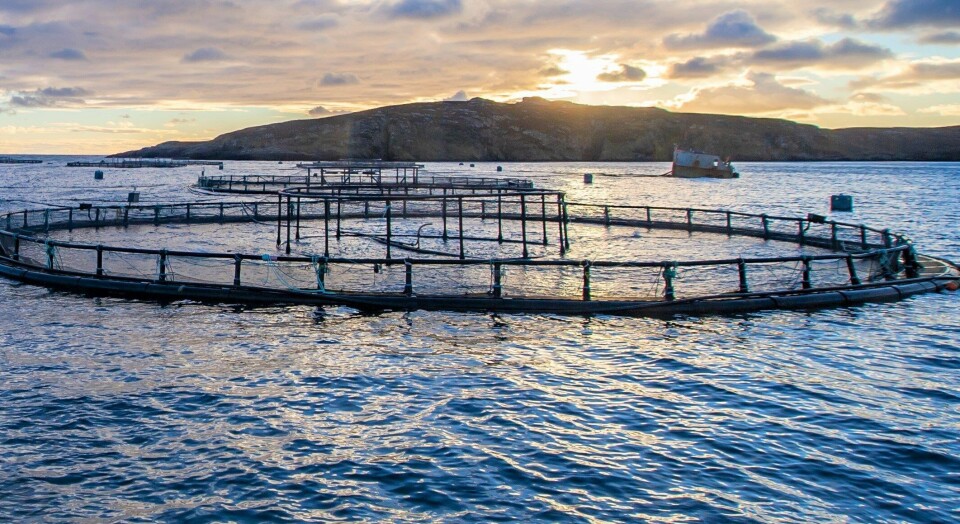
Aquaculture innovators offered thousands
Innovators with an idea, product or technology that can benefit the sustainability and/or productivity of aquaculture or other parts of the UK seafood industry can today apply for funding worth up to £300,000.
The £10 million UK Seafood Innovation Fund, which has a three-year lifespan, will open a second call for applications which runs from February 7 until April 20.
Innovators can apply for up to £50,000 for a feasibility study of up to three months, and up to £250,000 for a full research and development (R&D) project of up to 18 months.
Sustainability
Applications must provide an innovative idea or solution relevant to the seafood sector, and demonstrate long-term sustainability, productivity and environmental benefits.
Projects must be related to marine and land-based aquaculture, primary producers, onshore supply chains, or marine fisheries, including for species that move between freshwater and marine environments.
The Scottish Aquaculture Innovation Centre (SAIC) has offered to help those applicants whose projects fit within its three priority innovation areas: addressing environmental and health challenges, particularly sea lice and gill disease, and developing feeds that optimise fish health and nutrition; unlocking additional capacity in Scottish aquaculture; shellfish and other non-finfish species.
‘Get in touch’
“We can help, and we have helped projects that have been successful in the first round,” said a SAIC spokesperson.
“If anyone in Scottish aquaculture is thinking of applying for the second round, we are keen for them to get in touch. We can possibly help financially and with advice.”
The UK Seafood Innovation Fund is administered by the Centre for Environment, Fisheries and Aquaculture Science (Cefas) on behalf of the Department for Environment, Food and Rural Affairs (Defra).
Waste capture
Aquaculture projects that have already benefited from the fund include an 18-month project by scientists at the University of the West of Scotland to help develop a blood test-based salmon healthcare model similar to that used in human or veterinary medicine. The project was given £200,775.
An R&D project by Aqua Innovation Ltd to design, build and install a method of capturing, recovering and treating the waste material from under open net cages has received £250,000.
The world’s largest fish vaccination company, Aqualife Services Ltd, based in Stirling, also received £250,000 to expand the utility of its Inocubot 2 vaccination robot by developing new image processing algorithms for new species and individual End of Arm Tools (EoAT’s) so the Inocubot 2 can “grip” different species.
Single cell protein
The Institute of Aquaculture at the University of Stirling was given £249,747 to improve the production and quality of locally produced sustainable single cell protein (SCP) sources to ensure feed security for the UK aquaculture sector.
Inspro Ltd received £212,682 to build a prototype bioconversion unit (BCU), trial it with a partner retailer, using retailer’s food waste to feed black solider fly larvae (BSFL), and carry out feeding trials at Wiltshire trout producer Trafalgar fisheries and Sparsholt College in Hampshire using BSFL enriched feed.
Dundee-based aquaculture technology supplier Ace Aquatec was granted £232,950 to adapt a multi-beam sonar device to monitor fish densities and behaviour as well as triggering seal deterrents, and a further £250,000 for a project to combine its award-winning in-water electric stunner with a prototype bleeding system using a robotic arm and waterjets as the cutting device to revolutionise the way farms and fishing vessels stun and kill their fish.
Other grants for aquaculture projects include:
- £249,446 for Surrey-based Observe Technologies Ltd, which received to use propriety artificial intelligence algorithms to provide better automated feeding;
- £50,000 for a feasibility study by Teesside-based CPI Innovation Services Ltd into a project to make fish feed via mixed microbial fermentation from inexpensive mixed and/or waste gas streams
- £48,827 for a feasibility study by Skye-based Sgurr Services Ltd into the KelpRing, intended to lessen the mortality rate of cleaner fish by providing them with their own natural kelp forest within salmon pens.
Find out how to apply to the UK Seafood Innovation Fund here, and contact SAIC by emailing projects@scottishaquaculture.com.























































